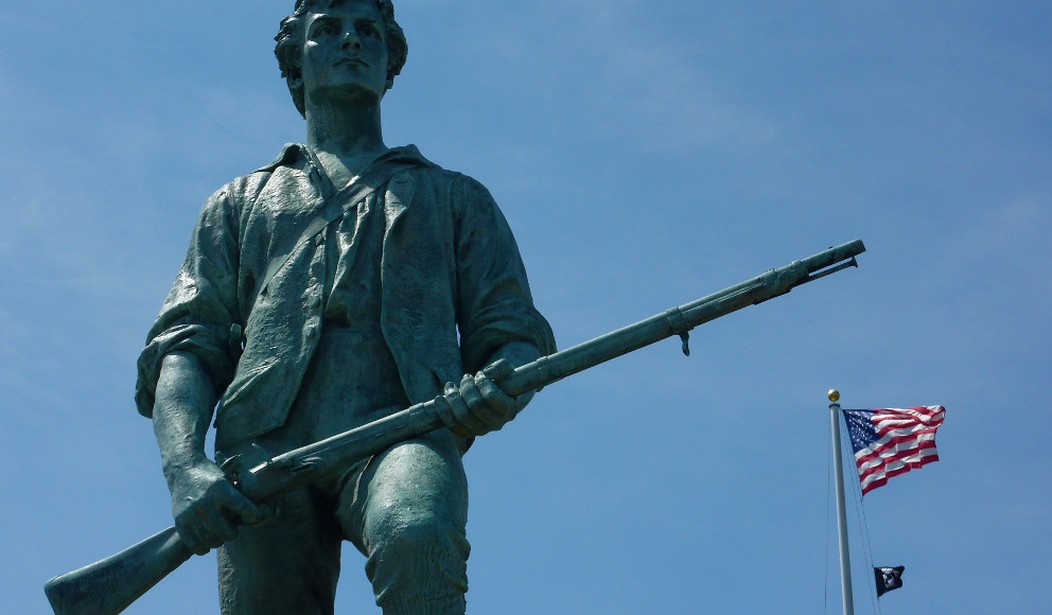It's usually somewhat of a misnomer to talk about the "gun control debate" in this country, given that there's rarely an actual debate talking place. Gun control advocates in particular seem loathe to engage with their pro-Second Amendment counterparts in a back-and-forth discussion. Maybe that's because they know they don't have a great argument, or perhaps its because they don't want to do anything that risks legitimizing (from their point of view anyway) support for the right to keep and bear arms.
Whatever the reason, it's rare to see representatives from both sides of the cultural and political divide over guns take part in a two-way conversation, so I was thrilled when Dr. John Lott of the Crime Prevention Research Center reached out to let me know about a recent debate at the University of Wisconsin-Madison between himself and University of Texas law professor Sanford Levinson.
The question? Whether or not the Second Amendment was a mistake. As you can imagine, Lott staked out the position that the right to keep and bear arms is a good thing; asking the audience if they could name a place in the world that banned all handguns or firearms in general and saw its homicide rates decline.
"You'd think just out randomness, once or twice a ban on guns lead to a decrease... but every single time it's gone up," Lott asserted.
For his part, Levinson, who was one of the first law professors in the past 40 years to acknowledge the Second Amendment means what it says, didn't exactly argue that the Second Amendment was a mistake, so much as it's out-of-date and out-of-step with modern society.
"The Second Amendment is in the Constitution in the first place because of the suspicion that the national government would become tyrannical," he told the audience. "You needed the possibility of an aroused public that could take up arms and overthrow a tyrannical government. It has nothing to do with self-defense against criminals."
I agree with Levinson's statement that the primary consideration for including the Second Amendment in the Bill of Rights was protection against tyranny, not protection against home invaders. I would argue, however, that the reason individual self-defense wasn't a factor in the debate over the Second Amendment was that there was already widespread acknowledgment that a right to self-defense existed, and no one was seriously (or even unseriously) suggesting that the right extended only to the use of bare hands while prohibiting bearing arms to protect individuals.
Levinson, who says he's in favor of a new Constitutional Convention to update our framework of government, concluded his remarks by saying that if he agreed with Lott about the benefits of gun ownership, he would ask conservatives a serious question: should they support governmental programs that would supply guns at low or no cost to people who can't afford them.
"If you really do care about the vulnerable and believe in addition that the vulnerable are the major losers from restrictive gun laws, then it seems to me that one would support a new liberal, democratic program to put guns in the hands of all vulnerable people who cannot now afford to buy first-rate or even second-rate firearms through the market."
Honestly, you could probably tweak the Civilian Marksmanship Program to supply firearms at cost or with very little markup to those on the lower rungs of our economic ladder, and I'd be just fine with that, but Lott had another suggestion: make firearms more affordable by getting rid of the government fees that price some people out of exercising their Second Amendment rights.
"In Washington, D.C, where they're voting on a lot of this stuff, it costs $125 to do a background check on a private transfer of a firearm," Lott said.
"That may not stop Sandy or I from being able to get a gun, but that's just the cost of the background check," Lott continued, noting that D.C. law requires a separate background check on every gun, even if multiple firearms are being sold to the same buyer. Cutting the red tape and bureaucratic B.S. that anti-gun lawmakers have erected as barriers between citizens and their Second Amendment rights might not make firearms accessible to every law-abiding American, but it would go a long way towards allowing every eligible citizen access to their Second Amendment rights.
All in all, it was a collegial debate between Lott and Levinson, and while I think Lott had the better argument it was still interesting to hear Levinson's point of view, no matter how much I might disagree with it. You can check out the entire debate for yourself in the video window below, and if you want to support the work that Lott is doing with the Crime Prevention Research Center, I'd encourage you to visit the CRPC website and kick in a few bucks to help aid in its research and scholarship.









Join the conversation as a VIP Member